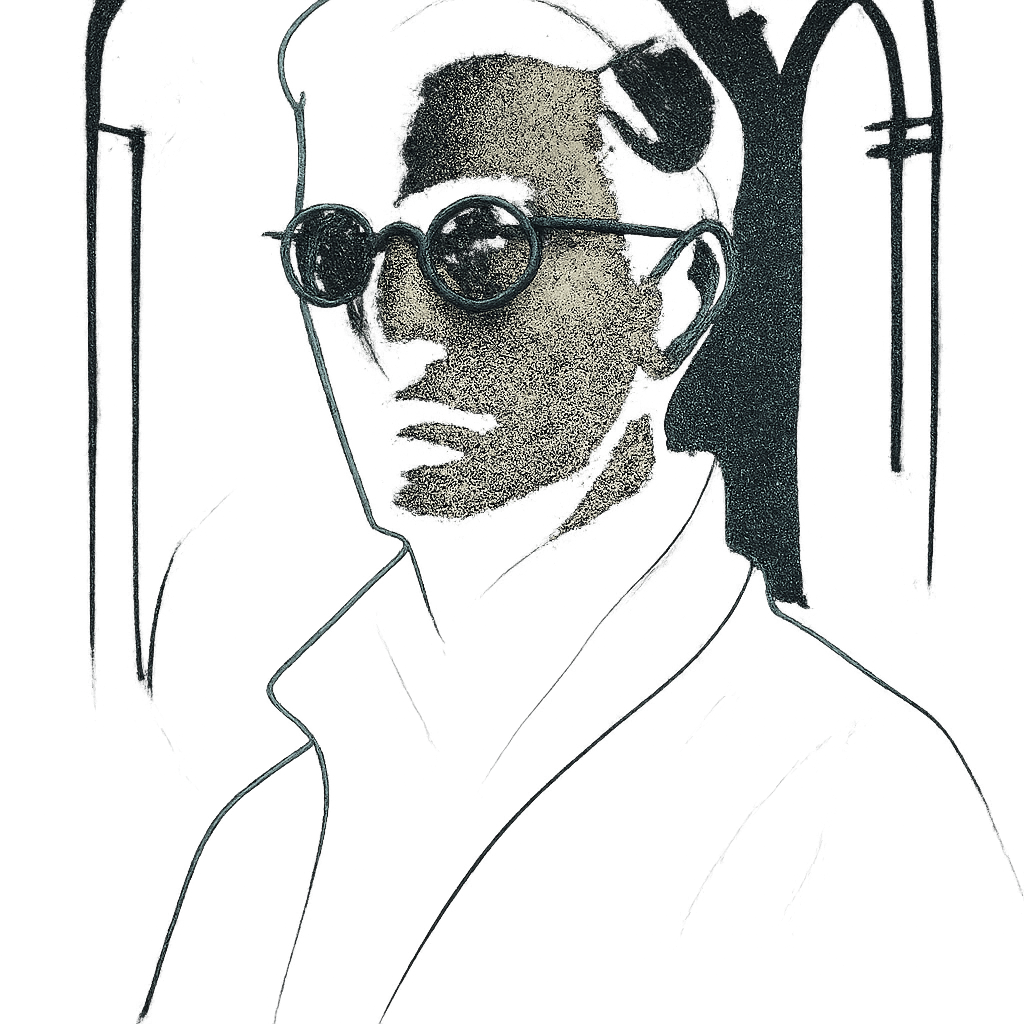

I looked out of place in Springfield, Massachusettes in my woven haik, long white hair and beard, aged 65 years. I looked like a wandering ascetic, which I was, of course. The problem was this: It was 1925, smack in the middle of the grand rebellion that was the 'Roaring Twenties', and there weren't many old, white male wandering ascetics in Springfield. Springfield was one of those towns that took itself seriously, oblivious to the anarchy swelling in the urban centers of New York, Philidelphia, Chicago, Los Angeles, and so on. Springfield was a place that didn't realize, yet, that the plush Victorian rug had been pulled from beneath its civilized feet. In short, Springfield was a precurser to the suburbs. This sceneario I found cosmically comic, ubiquitously uproarious, to say the least. The time and place were perfect for the creation of a deified jester. So be it. I would give them laughter incarnate. I would give the world Timothy Leary, whom I found out on a Sunday family picnic in the park, swinging upside-down from an oak tree branch, his face flushed with blood, his eyes abluge. He was grinning, of course. I strolled through the park, walked towards him through a clearing in the grove. He remained hanging all the while, watching me with curiousity. His parents picknicked around the bend of the knoll, out of sight. Out of sight. Indeed. Out of mind, soon to follow. Walking up to the tree where he hung, I removed a penny from my pouch, held it for a moment between my thumb and forefinger, then flicked it in his direction. He caught it, still hanging by his legs from the tree. I was impressed. The resonation expanded, whispers passed from molecule to molecule spreading secrets, lighting his mind, enlightening, as a bright comet illumes the voids of open space. He dropped from the branch and I caught him, laid him gently on the ground at the base of the tree. We looked at each other for a moment, began laughing. Divine Laughter. Chortling together, quietly at first, the giggles soft, bubbling up like champagne founts, extracelestial, in unison. Pefect harmony and visions passing between us direct from the fountainhead, the godhead apheonix. Giggling giving rise to lunacy, touched the moom, giving rise to schizophrenacy, touched by the gods. The wisdom of harmonics transmogrifying from finite to infinite, blooming flowers from the chortling, becoming belly laughs by and by. Wake up, laughing boy ! Arise and smell the stink abrew in the sink and let it free your mind from the hypocrisy in which so many mortals dwell. Leary of the Curling Crowsfeet, and blow the cobwebs from the catacombs of your mind. Arise! Stand up and show them how silly they look with staid posture and stale prose. They who take themselves so seriously. The 'they' in "that's what they say." Mirror them, then drop out. You know the story. Get to the pinnacle peak of wisdom and the wise old scholar asks you for a cup of coffee and a handjob, tells you to go back to the base. Grip it by the root and laugh like hell, because laughter will take you through the worst of the firey deities. Quiet cool laughter, silken and smooth from the source that creates a song, a sheild so strong that the most wrathful of the deities but scuffs the surface and we pass through them, learning unto light. Leary, head Boo-Boo in the Church of the Mile-Wide Grin, show them how silly they look with somber talk of the Great Society while they murder and maim on a whim. Let them kill this Great Mother's children no longer. Turn on the day-glo electric ladylight of love, tune in to the celestine frequency most fine and drop the acid-bridge bomb upon a generation. Show them the path leading out the door and off the wheel of samsara. Leary the Laughing Prophet, call the purple haze from the stagnant mire of the social swamps so sullied in your midst, give them back both life and love. Revive in them the Pursuit of Happiness. Give them liberty and leave them laughing in the forests, clutching their bellies, unable to control the happiness welling up within them, a love and understanding so vast that the mundane becomes a maudlin joke. This of taking things so seriously. Too much to do to take things so seriously. Humanity lay at the threshold of evolution, Leary of the Lucid Love, teach them to laugh, it'll make things easier. Laughter brings the quickening. Laughing leads to directly to immortality. Laughter keeps you whole. Laugh at them, laugh with them, Leary of the Lucid Light of Laughter, teach them to be pranksters bold and merry, teach them to be quick and to be kind, teach them to be burning, ever yearning, for that quantum state-of-mind. Swirling about him slowly, I became the 16 million colors within pure white light and hovered about allowing him to basque for moment in an ultimate state of chromodynamic harmony. He would be the least appreciated of my avatars, being a jester, albeit divine, and I wanted him to feel serne, if only for a moment, because for the remainder of his life he would be surrounded by fools and dreamers. Fools and dreamers, though annoying, remain solely responsible, for the evolution of humankind. Ironically, sadly sardonic, most of them live out their lives, scorned and mocked, hated by the denizens who later speak their name with hallowed honor. It's tendancies such as these that make civilized society look so blatantly, utterly backwardly ignorant and entirely inept, tend to make Western Civilization look like a lying hypocrite. And that's being polite. Really. I mean, this business of the Platonic Republic in which the Philosopher Kings pass down the information from the muse to the masses as they see fit, well, it just doesn't work. It ultimately leaves the masses in the ignorant dark, leaves it up to the brave dreamer who carries the torch only to be slain, then later honored for his bravery. It's tough to be a dreamer, or a fool, for that matter. So with this in mind, I gave him a moment of multimillion-colored peace, a moment of rainbow peace and quiet before the storm, then left him dazed and delighted, his eyes alight with laughter and wisdom. Certainly, he had his work cut out for him, as does any avatar. Dr. Leary's work, however, would revolve solely around the cosmos of Divine Comedy. That's where things get weird. And weirdness, the 'wyrd', as it were, manifests as something not of this earth, as something sacred, not profane, as something seated at the right-hand-side of godliness. Weird is good. Weirdness relates directly to humor. Humor helps overcome the fear of dying. And overcoming the fear of dying, learning laughter in the face of Death, well, that leads directly to Nirvana. Laugh and learn and live forever. It's that simple. _ _ _
In the dim glow of a flickering streetlamp, where shadows dance like forgotten memories, Kevin M. Cowan weaves his tapestry of tales, a symphony of words that echoes through the alleyways of the mind. His pen, a conductor's baton, orchestrates the haunting melodies of human experience, each note resonating with the melancholy of a distant saxophone. As a writer, he delves into the labyrinth of the soul, unearthing truths buried beneath layers of time. As a musician, he crafts soundscapes that linger like the scent of rain on asphalt, each chord a whisper of the heart's deepest longings. As a technologist, he navigates the digital ether, a modern-day alchemist transmuting
 Neo, Archive Guide
Neo, Archive Guide